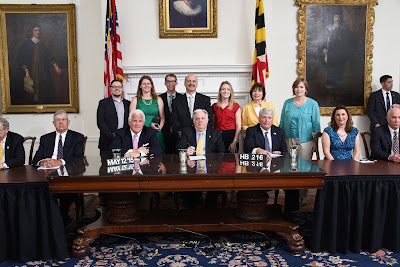I hope you and yours are doing well. I've been busy preparing for nationals in 3 weeks! It's finally July, Miss Earth United States month! In today's edition of My Green Maryland, I'll be talking about what microbeads are, their use on toothpaste and personal care products, and its environmental effects on marine life. Microbeads are tiny pieces of plastic, often less than a millimeter wide, usually made of polyethylene. They primarily serve as exfoliants in face washes and body scrubs, but also add color and texture to toothpastes, lip balms, moisturizing creams, and makeup. A single tube of face wash can contain more than 300,000 of the plastic beads, which are cheaper than other common natural exfoliants like apricot seeds, coconut husks, or diatomaceous earth.
 |
| Miss Earth Maryland 2015 Ruby B. Johsnon |
| Microbeads |
To know if your product contains microbeads, look for polyethylene on the list of ingredients; this is the most common type of microbead. Polyethylene isn't the same as polyethylene glycol. Other ingredients to watch out for: polypropylene, poly-e-terephthalate, and polymethyl methacrylate. Below are a few products that are microbead-free. The advocacy organization Beat the Microbead has more extensive product lists. Facing consumer pressure, several large cosmetics manufacturers have either already removed microbeads from their products or have pledged to phase them out. Johnson & Johnson, which makes Neutrogena, and L'Oréal, which owns Garnier, have pledged to remove the beads by 2017. Unilever phased polyethylene microbeads out of its products, including Dove and Axe soaps, earlier this year.
 |
| Governor Larry Hogan of Maryland signs HB 216, banning use of microbead products in Maryland |
On May 12, 2015, Governor Larry Hogan signed into law HB 216, banning plastic microbeads as an ingredient in personal care products in Maryland. The law, sponsored by Delegate Dan Morhaim of Baltimore County, requires manufacturers to phase out the use of plastic microbeads in 2018 and bans the sale of products containing them at the end of 2019. These changes effectively require manufacturers to use natural alternatives like oatmeal, apricot stones, salt, and rice. With the agreement of the Personal Care Products Council, Maryland’s ban effectively closes this loophole. The law requires the Maryland Department of the Environment to establish regulations so that alternative exfoliants meet international standards to biodegrade in wastewater treatment plants and the marine environment, and for MDE to review the regulations periodically to ensure the strongest, most relevant standards are in effect.
Similar bans arose in other states in 2014, particularly after researchers found alarmingly high concentrations of microbeads in the Great Lakes. Illinois and New Jersey passed bans last year, but with loopholes for so-called biodegradable plastics like polylactic acid (PLA). Unfortunately PLA only biodegrades at extremely high heat, not in the cool temperatures of the water.
Ruby B. Johnson,
Your Miss Earth Maryland 2015
Continuing the legacy of beauty and responsibility
Credits:


No comments:
Post a Comment